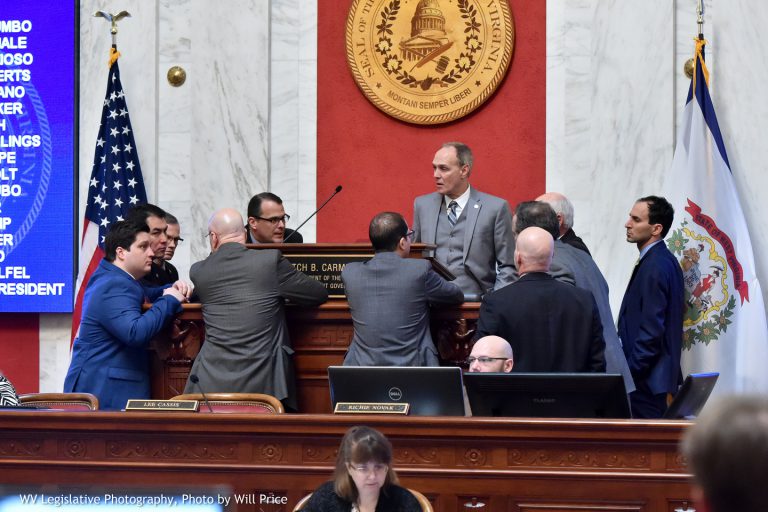The House of Delegates convened Wednesday, Jan. 9 for the first regular session of the 84th West Virginia Legislature.
To start the session, delegates were sworn into office and then elected officers. Delegate Bill Anderson, R-Wood, served as the presiding officer over the House of Delegates until the elected positions were filled.
West Virginia Chief Justice Beth Walker administered the Oath of Office to the House and swore new and returning Delegates into the legislative session.
The first item of business was the appointment of the Speaker of the House for the 84th Regular Session of the West Virginia Legislature. Delegate John Shott, R-Mercer, nominated Delegate Robert Hanshaw, R-Clay, to be elected Speaker of the House.
Delegate Amy Summers, R-Taylor, seconded the nomination, saying Hanshaw “has a vision to make West Virginia a better place to live, work, and raise a family.”
With 59 votes, Delegate Roger Hanshaw took his place as the Speaker of the House for the Regular Session of the 84th West Virginia Legislature.
In his acceptance speech, Hanshaw referred to ambitious plans for the legislative session. Goals for the House of Delegates include working on legislation to increase broadband access to parts of rural West Virginia, and working on legislation to reform the state’s foster care system.
Steve Harrison was re-elected as House Clerk.
Anne Lieberman was re-elected as House Sergeant-at-Arms.
Robert Stewart was re-elected as House Doorkeeper.
After electing members of the 2019 Regular Session and adopted a procedural resolution to invite Gov. Jim Justice give his State of the State Address at 7 p.m.
The House of Delegates will reconvene at 6:45 p.m. to conduct further legislative business.
The House of Delegates will reconvene at 11 a.m. on Jan. 10, tomorrow,in the House Chamber.
The Following House Committees are meeting in the next 24 hours:
The House Education Committee will meet at 2 p.m. in 434M today, Jan. 9.
The House Finance Committee will meet at 2 p.m. in 460M today, Jan. 9.
The Government Organization Committee will meet at 2 p.m. in 215E today, Jan. 9.
The House Judiciary Committee will meet at 2 p.m. in 410M today, Jan. 9.
The House Committee on Banking and Insurance will meet at 10 a.m. in 215E tomorrow, Jan. 10.
The House Finance Committee will meet at 9 a.m. in 460M tomorrow, Jan. 10.


